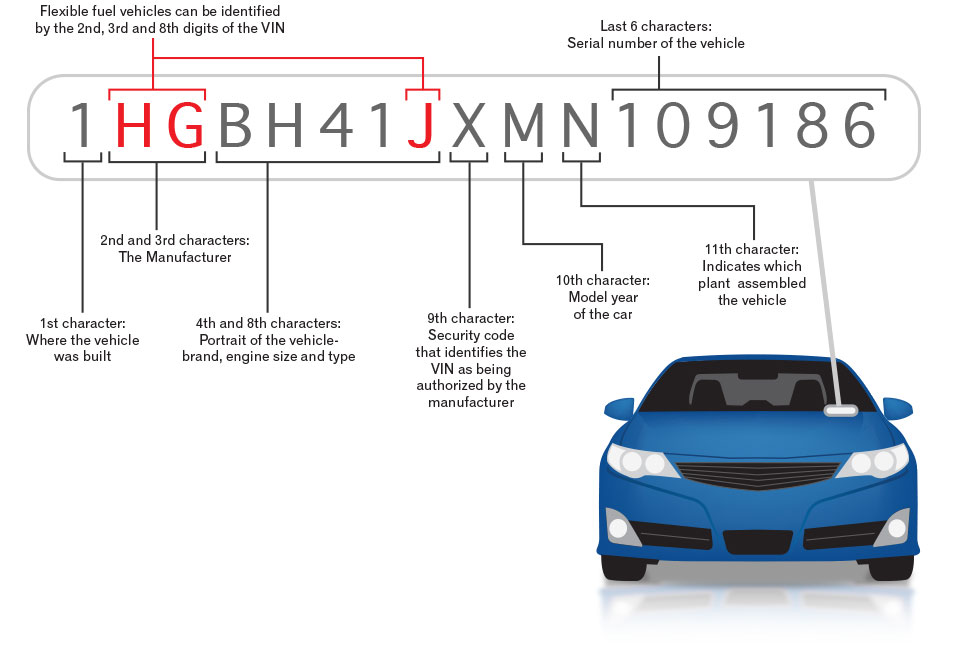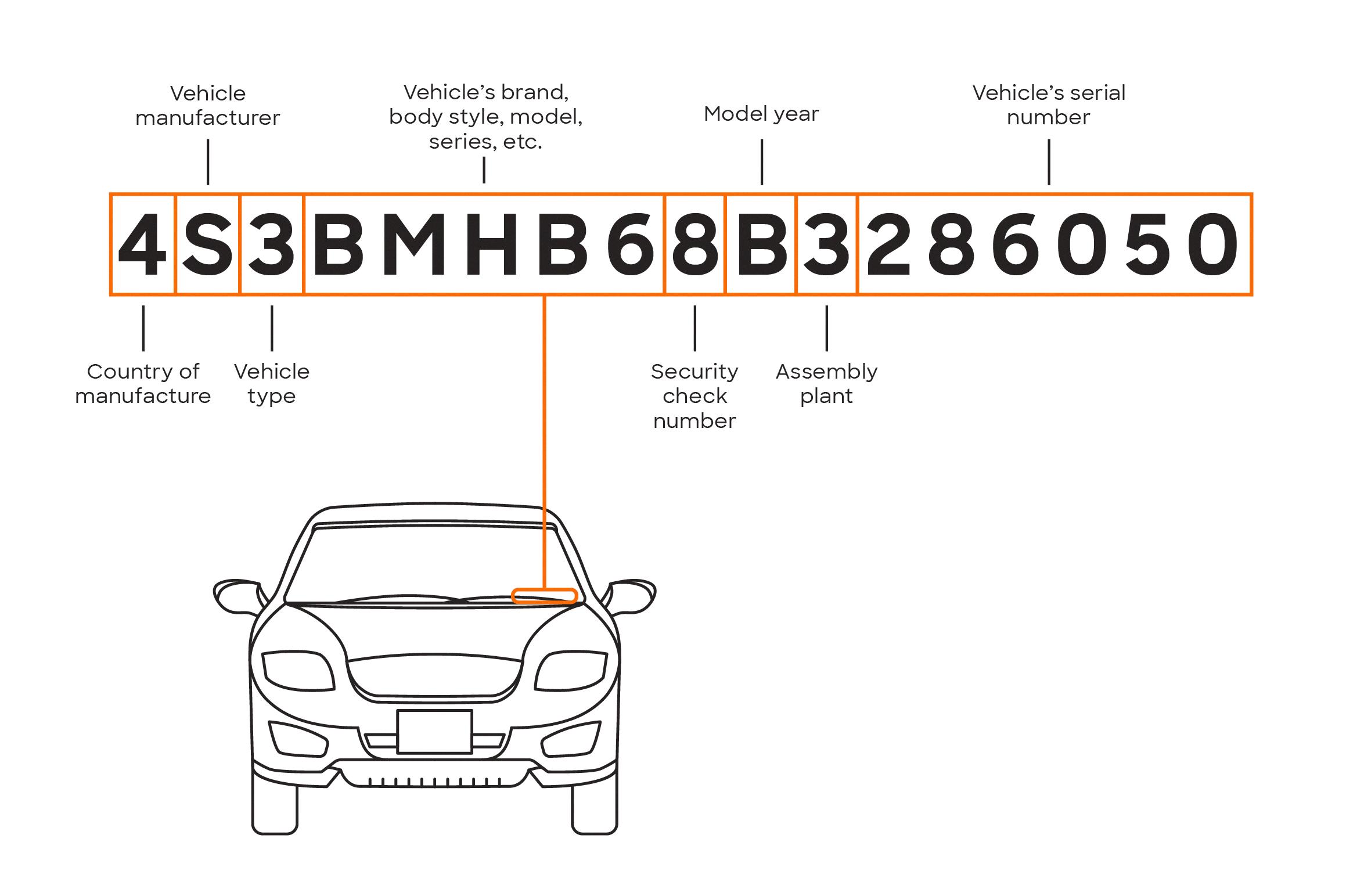If you’re a car owner or have ever purchased a vehicle, you may have heard of a VIN number. But what is a VIN number, and why is it important? In short, a VIN number is a unique code that identifies every vehicle on the road. Think of it as a car’s fingerprint.
But what exactly is encoded in a VIN number? The answer is a lot! A VIN number contains information about the make and model of the vehicle, the year it was manufactured, the location where it was made, and even specific features of the car. This information can be incredibly ueful for car buyers, mechanics, and even law enforcement.
So where can you find your car’s VIN number? The good news is that it’s easy to locate. On most passenger cars, you can find the VIN number on the front of the dashboard on the driver’s side. To see it, simply look through the windshield from outside the car. You may also find the VIN number on the driver’s side door pillar.
Once you have your car’s VIN number, what can you do with it? One of the most useful tools is the VIN decoder provided by the National Highway Traffic Safety Administration (NHTSA). By entering your car’s VIN number into the decoder, you can access specific information about your vehicle, including any recalls or safety issues.
But that’s not all. You can also use your car’s VIN number to check its service records, insurance history, and even title records. If your car insurance provider has an app, you may be able to find your VIN number there as well.
Now that you know the importance of a VIN number and how to locate it, it’s time to put this knowledge into action. Take a few minutes to find your car’s VIN number and use it to access helpful information about your vehicle. You never know what you might discover!
Looking Up a Vehicle Identification Number (VIN) Online
You can lookup your VIN number online using the National Highway Traffic Safety Administration’s VIN decoder tool, which is available to the public on their website at https://vpic.nhtsa.dot.gov/decoder/. By entering your VIN number into the decoder, you can access valuable information about your vehicle, including its make, model, year, body style, engine type, and more. This information can be useul for a variety of reasons, such as verifying the authenticity of a vehicle, checking for open recalls or safety issues, and ensuring that the vehicle meets your specific needs and preferences. Additionally, many online vehicle history report services also allow you to lookup your VIN number and obtain a comprehensive report on the vehicle’s history, including its ownership history, accident history, and more.

Finding a Vehicle Identification Number (VIN) Without a Car
Finding a VIN number without a car can be done using a few different methods. One option is to look up the car’s title records, which will typically include the VIN number. Additionally, checking the car’s service records, insurance card, or insurance policy documents may also provide the VIN number. If the car insurance provider has an app, the VIN number may be found there once logged in. It’s important to note that while these methods can be effective, they may require some effort and research to obtain the VIN number.
Looking Up a Vehicle Identification Number (VIN)
To look up your VIN number, there are seeral methods you can use. Firstly, you can check your vehicle’s registration documents as the VIN number is usually listed there. Secondly, you can check on the driver’s side dashboard of your car, where the VIN number is typically located. You can also check the driver’s side door pillar, where the VIN number may also be listed. Additionally, you can use online resources such as the National Highway Traffic Safety Administration (NHTSA) website or Carfax to lookup your VIN number. These websites will provide you with a detailed report on your vehicle’s history, including any accidents, recalls, or repairs. Overall, there are several ways to lookup your VIN number, and using online resources can provide you with valuable information about your vehicle’s history.
Does a Temporary VIN Number Exist?
There is no such thing as a temporary VIN number. A VIN (Vehicle Identification Number) is a unique 17-digit code assigned to each vehicle by the manufacturer. It serves as a permanent identifier for the vehicle throughot its lifetime. The VIN is etched onto the vehicle’s rear glass and is also displayed on a metal plate attached to the vehicle. It contains information about the make, model, year, and country of manufacture of the vehicle, as well as a unique serial number. The VIN is an essential part of a vehicle’s registration and insurance documentation, and it cannot be changed or removed. Therefore, there is no need for a temporary VIN number, as the permanent VIN serves as the vehicle’s unique identifier.
Checking a Vehicle Identification Number (VIN) Online
When it comes to checking a VIN number, there are many websites to choose from. However, the two most popular and reliable options are AutoCheck and Carfax. Both of these sites offer paid reports that contin detailed information about the vehicle, including any history of recalls, thefts or crashes. Additionally, the reports also include a description and overall evaluation of the vehicle. While there are many other sites that provide free VIN checks, they may not be as comprehensive as the paid reports offered by AutoCheck and Carfax. Therefore, if you want a thorough and reliable report on a vehicle’s history, it is recommended to use either AutoCheck or Carfax.

Source: policygenius.com
Is Running a VIN Number Free?
It is possible to run a VIN (Vehicle Identification Number) check for free online. Some websites and services offer free VIN checks that provide basic information about a vehicle’s history, such as if it has been reported as stolen or salvaged. The National Insurance Crime Bureau (NICB) is one such service that offers a free VIN check to verify if a vehicle has been reported as stolen but not recovered, or listed as a salvage vehicle by select insurance companies. However, more detailed reports that include accident history, maintenance records, and ownership history may require a fee. It is important to note that not all free VIN checks are created equal, and some may provide inaccurate or incomplete information. It is always a good idea to verify the information obtained through a free VIN check with other sources beore making any decisions.
Conclusion
VIN number is a crucial identifier that cntains valuable information about a specific vehicle’s history and characteristics. By decoding this number, you can obtain information regarding the manufacturer, model, year, and even the production plant of a particular car. It is essential to know how to locate and read the VIN number, as it can help you make informed decisions when purchasing a vehicle or maintaining one. Whether you are checking the car’s title records, service records, or insurance documents, the VIN number is an integral part of the process. Therefore, understanding the importance of the VIN number and knowing how to decode it can greatly benefit anyone who owns, operates, or insures a vehicle.
